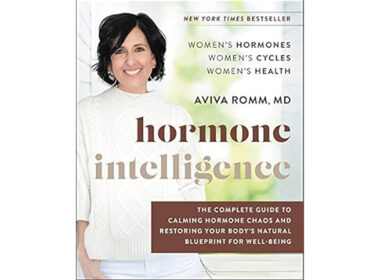“I had severe depression with suicidal thoughts. I had no libido and I got severe fatigue. I took on weight and was not able to lose it…. After stopping with the birth control pill these symptoms vanished.” —Ursula, public commenter on the FDA Citizen’s Petition for greater transparency of birth control side effects.
It’s not all in your head: the Pill definitely affects mental health
I cannot count the number of times I’ve heard women share that they didn’t feel themselves—and worse, experienced severe mental health effects like depression, anxiety, or suicidal thoughts—on the Pill, patch, shot, vaginal ring, hormonal IUD, or even the copper IUD. It is so common you might think it’d be common knowledge. Yet, week after week I still see women asking about their mental health symptoms on Facebook groups, “is it the Pill or just me?”
Unfortunately, many women don’t find answers from their doctors or even mental health professionals if their depressive or anxious symptoms are due to hormonal contraceptives. Perhaps because contraception is seen as a “given” for all young women of reproductive age, there seems to be a major blind spot in recognizing and addressing the problematic mental health side effects of birth control.
A woman named Rachael left a telling comment at the FDA Citizen’s Petition filed in 2019, which is still open for comment. Immediately after being prescribed the Pill at age 18, she said, she experienced multiple side effects, including depression.
“When I discussed these symptoms with my doctors, I was told that I wasn’t drinking enough water, I was simply underweight or that there was something wrong with me—not the medication … In fact, every Gynecologist I’ve ever seen pushes the pill or another form of hormonal birth control with me even after I discuss with them all of my concerns regarding the bad side effects I’ve had in the past. I find this strange, because whenever I discuss side effects with doctors about other medications, they do their best to avoid it if at all possible, or switch to ones that work differently. Hormonal birth control is the only medication I’ve ever been not just prescribed, but actively encouraged to take despite having an adverse reaction to every single brand I’ve ever taken.”
Why your doctor ignores the mental health side effects of birth control
In an interview with Natural Womanhood this year, Lisa Hendrickson-Jack, founder of the Fertility Friday podcast and author of The Fifth Vital Sign, explained: “We already know women are considered more emotional… all of the stereotypes… so when you as a woman go to a doctor and say that you have anxiety, depression, or panic attacks, there’s this inherent issue with ‘well that’s a part of being a woman.’ So, there’s an inherent barrier to proper diagnosis and care in general and I think we can all recognize those stereotypes.”
Hendrickson-Jack noted that, although every hormonal contraceptive product insert discloses that mental health effects like depression and mood change are among the most common side effects, many doctors dismiss the severity when patients bring them up.
“What I learned when I interviewed a number of doctors over the years on the [Fertility Friday] podcast,” Hendrickson-Jack said, “is that in medical school it seems as though doctors are taught about the life-threatening side effects and how to mitigate those risks, almost to the exclusion of the non-life-threatening risks.”
“When it comes to anxiety and depression,” she said, “many doctors don’t seem to know or aren’t necessarily familiar with those [birth control] side effects.”
Teens are at the greatest risk
Hendrickson-Jack continued:
“A scary stat to illustrate this is that teenage girls who are on hormonal contraceptives are much more likely to also be on antidepressants. There’s research and studies that show this correlation. If you knew that hormonal contraceptives increase your chance of depression, anxiety, then if a 16-year-old comes into your office and says she’s depressed you could say, ‘Are you on hormonal contraceptives? There’s a link there, so maybe we come off it for some months and see if there’s an improvement, and if there isn’t, then we can look at some other prescription or some other treatment for that.’ That’s not what happens.
“So for adult women that are facing these side effects and symptoms, the hard truth is it’s kind of up to you to educate yourself on those most common [birth control] side effects because it’s not every time that you go into your doctor’s office that those links are going to be made, and you’re maybe more likely to come out with another prescription for an antidepressant than you are for someone to make the link that it could be related to the birth control.…”
All of this is especially troubling when we consider how in 2017, The American Journal of Psychiatry published a study of nearly a half million Danish girls, which found that girls and women using hormonal contraception were almost two times more likely to attempt suicide than those not taking the drugs, and were over three times more likely to succeed in their suicide attempt. There have also been accounts of women experiencing symptoms of other psychological problems such as anxiety and mood disorders—symptoms which disappeared as soon as these women stopped taking their contraceptive drugs. All this has begun making more sense as new studies discover the effects that hormonal contraceptives have on the brain.
A better way to plan your family, get help for infertility, or heal painful and irregular cycles
The good news is women don’t need to resort to hormonal contraceptives, or even the also-problematic copper IUD, in order to regulate their periods or practice effective family planning. Modern fertility awareness methods (FAM) teach a woman how to know when she is fertile and infertile during her menstrual cycle with great precision, leading to typical family planning effectiveness rates as high as 98%, depending on the method used. When used in conjunction with restorative reproductive medicine (RRM), FAMs also have the potential to help pinpoint and effectively treat many of the underlying causes of infertility.
What’s more, fertility awareness methods can assist teen girls in greater understanding of their bodies, and assist them in documenting and receiving treatment for irregularities in their cycles. There are now so many excellent resources for teaching teens fertility awareness, and, as teen FAM educator Cassie Moriarty shared in a Natural Womanhood article, many teens prefer fertility awareness to birth control drugs: “I’ve found that when teens understand what hormonal contraception is, how it operates, and what their alternatives are, they are much more likely to choose a Fertility Awareness-Based Method where they can work with, not against, their body’s natural processes.” Further, Cassie says, teen girls “want to know how it works and what the heck is going on with their emotions. This is a crucial step in creating a positive relationship with their bodies.”
Want to hear more about the mental health effects of birth control? Watch this five-minute interview with Lisa Hendrickson-Jack (below) on the truth about mental health and birth control.
Mental health effects of birth control are real // Lisa Hendrickson-Jack

Interested in hearing more about what fertility awareness has to offer teens? Watch this three-minute video (below) where Lisa Hendrickson-Jack explains how FAMs can be transformative for teen girls.
What teen girls aren’t taught in sex education (understanding of cycles) // Lisa Hendrickson-Jack








